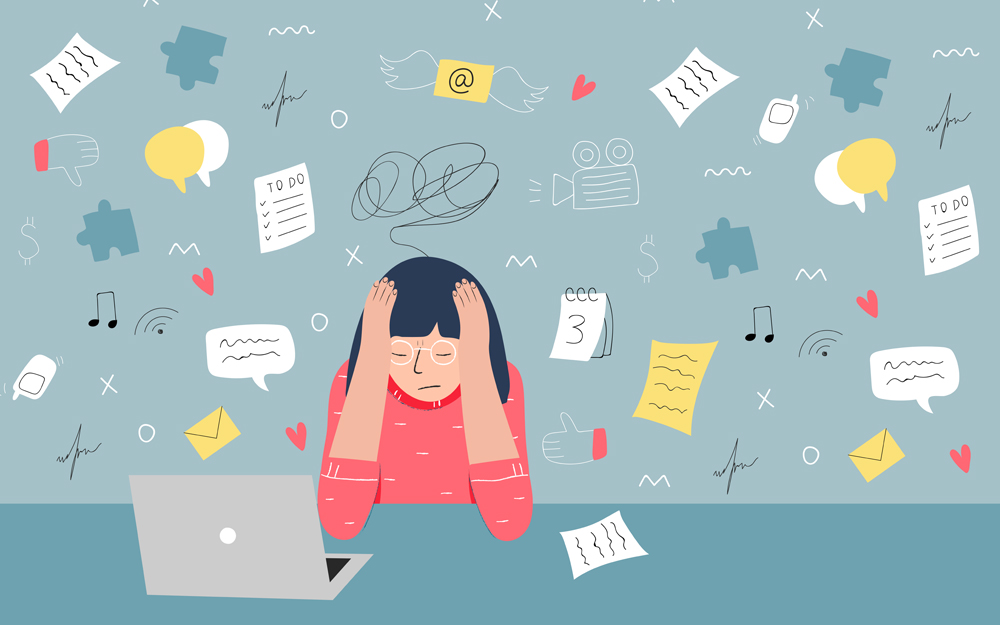If you’ve spent any amount of time in the workforce, you know that stress is a common struggle. Fortunately, there are a number of ways to reduce or manage your stressors so that you can focus on your career and goals. Welcome to the club — we know that stress can get the best of us. But with a little planning, you can use your stressors as motivation rather than an excuse for missing work or giving up. We all experience stress at different times in our lives. But for some people, stress takes a greater toll than others.
According to one study, those who deal with high levels of chronic stress have an 80% higher chance of becoming depressed than people who aren’t stressed out that often . Similarly, research shows that those who experience workplace stress are three times more likely to suffer from anxiety and depression. If you’re feeling stressed at work or are having difficulty managing your stress, here are 5 important things you need to know:
What is stress in the workplace?
Stress in the workplace is the psychological and physiological response that occurs when a person is faced with high levels of perceived stress. High stress is defined as feeling “overwhelmed,” “overload,” or “tense”. People experience different levels of stress in different situations. High levels of stress are often experienced when faced with challenging situations or tasks. When stress is high, your body produces hormones that cause your muscles to contract and your heart to speed up. Stress can also release stress-reducing chemicals like endorphins.
Why does stress at work happen?
We all experience stress at different points in our lives, and different jobs can bring on different levels of stress for different people. For some people, stress just comes naturally; they’re meant to handle pressure, and they can handle it better than others. However, for many people, high stress levels at work are the result of poor work habits, a family situation they can’t control, or an unfair work environment. Think about the situations where you find yourself stressed the most, and see if there’s something you can do to change those circumstances.
How to manage your stress at work
There are many ways to manage your stress at work. The first is to plan ahead. Make a list of all the things you’re responsible for, and create a task order for yourself to work on those assignments until the stress is managed. Another way to manage stress at work is to ask for help. If you have a hard time managing your workload, talk to your manager about prioritizing for you so you can take care of other assignments first. If you have a family emergency, take a break from your assignments to pick up the slack and save your company money in the process.
5 ways to reduce or manage stress at work
By being aware of your triggers and managing your stress better, you can better control your reactions to them. Finding a support system: If you’re feeling overwhelmed or stressed out, a good way to get your therapist or healthcare professional on speed-dial is to email them a list of your stressors and needs.
You can also find a support group on Facebook or LinkedIn. You can also find a support group on Facebook or LinkedIn. Setting goals: This can be a powerful stress-reducing tool because it gives you something to focus on and something worth working towards. This can be a powerful stress-reducing tool because it gives you something to focus on and something worth working towards. Creating a plan: One of the most important ways to reduce stress at work is to create a plan. This could be a sentence of truth, a list of things you’re going to do, or a spreadsheet you can use to keep track of your progress. Put your plan in place, and see how it feels when you get started.
Conclusion
Stress is a normal part of life, and it can also be a source of stress for your career. The good news is that there are a number of ways to deal with it and get ahead in your career. Knowing how to manage your stress can allow you to be more productive at work, and it can also help you stay focused and avoid burnout.


[…] weekly rhythm of working is stressful enough, but as your company grows, so does the number of employees. To help employees understand […]